XRC Labs 2018
XRC Labs is an accelerator program that runs two 14-week programs each year, focusing on the retail and consumer goods industries. The program partners with the Parsons School of Design at the New School and consulting firm Kurt Salmon. It brings together entrepreneurs, investors and sponsors to foster innovation and unlock new opportunities in retail.
XRC Labs sponsors include The Estée Lauder Companies, Gap, Intel, Lowe’s, National Association of Chain Drug Stores (NACDS), National Retail Federation (NRF), Retail Industry Leaders Association (RILA), Shoptalk and TJX Companies.
Below are highlights from the event and brief profiles of the participating startups.
The store format continues to evolve and retail remains in a dramatic state of change.
Joel Towers, Executive Dean of the Parsons School of Design, and Pano Anthos, Founder and Managing Director of XRC Labs, kicked off the morning with introductions and an overview of the retail environment. Towers emphasized that the challenges facing the retail industry are political, urban, social, dynamic and technological, and that design innovation can help solve them.
Anthos noted that retail store closure numbers hit an all-time high in 2017 and that customer traffic numbers are soft because retailers are slow to change. He said that retail innovation is slow compared with technological innovation, but that retail is indeed changing. Anthos noted that stores are evolving in five key ways: they are mobilizing to serve consumers through flexible formats, offering unique experiences, operating as platforms, operating as services for consumers and serving as factories where consumers can purchase items on demand.
XRC Labs is also evolving, and 48 companies from the first four cohorts are still active.
Anthos spoke about the evolution of the XRC Labs program over the past two years. More than 300 companies applied to the program in 2018 and 48 companies from the first four cohorts are still in business, he said. Anthos noted that the top trends from this year’s applications included artificial intelligence (AI), manufacturing, supply chain visibility, blockchain, computer vision, self-checkout, beauty, female-focused products, augmented reality and neuro-linguistic programming.
The nine companies in XRC Labs’ Cohort 5 each presented an overview of their retail technology solution.
Carly-Ann Fergus, the Program Director of XRC Labs, introduced the nine companies participating in Cohort 5, which then presented their solutions. Standouts included Convrg, maker of an AI-powered chatbot that aims to reduce returns through upselling, and LexSet, a B2B object recognition solution for interior design that aims to help consumers select furniture that will fit, both aesthetically and physically, into their home.
Clark is a platform that aims to bridge the offline and online worlds by empowering shoppers to see and save (or purchase) products they discover in-store to a virtual wish list without the use of an app. Upon entering a store, shoppers are given an RFID-powered key to scan products to build a list of items in the store for purchase at their convenience.
CEO and Founder Melissa Gonzalez described Clark as “the shortest and friendliest route to purchase a product.” Gonzalez said that the company has developed an intelligent shopping and checkout solution that allows consumers to transition through shopping channels without needing to download any apps. With its partner, mall owner GGP, the company went live last fall.
Convrg created an AI-powered chatbot and voice experience platform that helps retailers convert returns into sales by upselling. Cofounder and CEO Audrey Wu said that more than 92% of consumers polled in a 2017 survey reported that they would purchase another product from the same retailer if the return process were simple. Convrg aims to build conversational experiences through brands’ and retailers’ websites, messaging apps and voice assistants to help consumers through the return process with personalized upselling, with the end goal of increasing the retailer’s revenue.
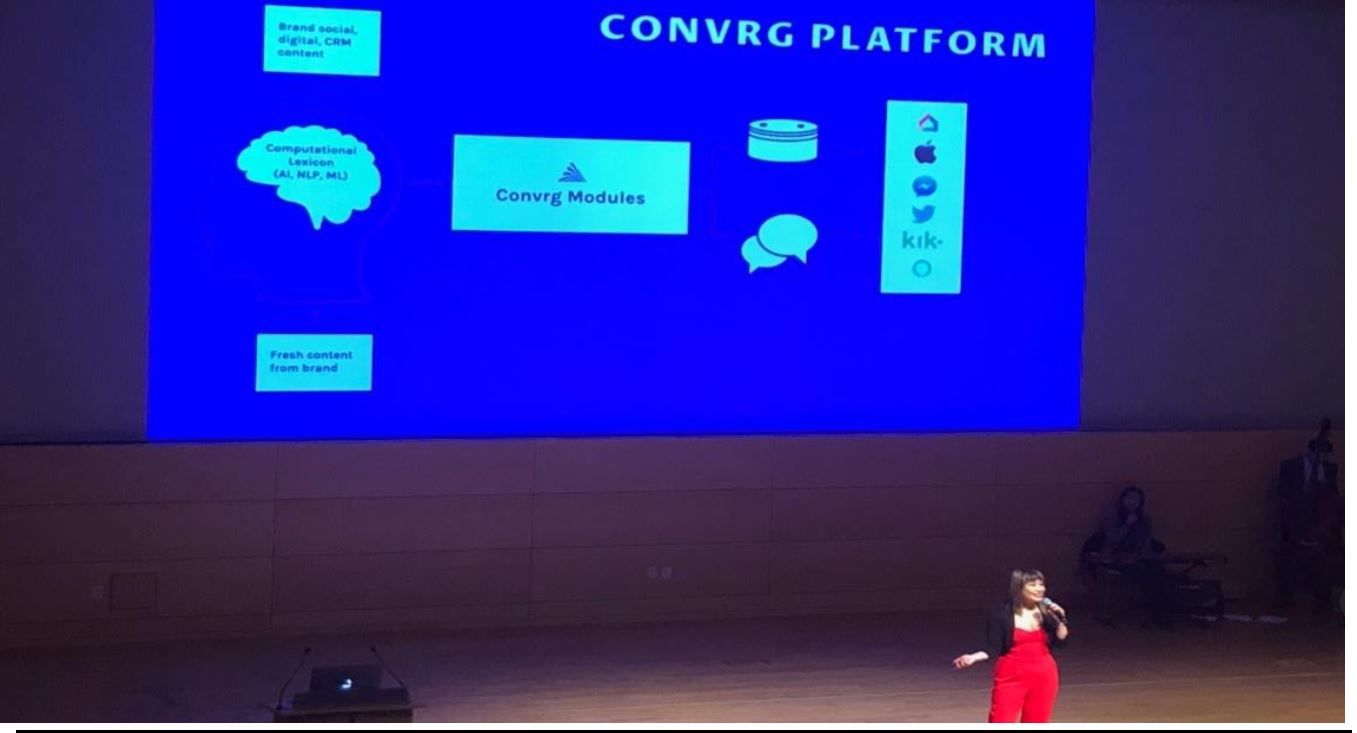 Audrey Wu, Cofounder and CEO, Convrg
Source: Coresight Research
Audrey Wu, Cofounder and CEO, Convrg
Source: Coresight Research
Fillogic is an in-mall logistics platform that aims to transform the mall into a cost-effective logistics hub. The company works with mall-based retailers and parcel carriers to enable them to process more volume with existing inventory, people and assets. Founder Bill Thayer said that the company focuses on in-mall logistics and aggregating demand in malls to maximize scheduling and delivery, freeing up retailers to focus on service.
Frenzy is an automated solution for influencers, brands and retailers to monetize their images with no manual work or added fees. Unlike computer vision solutions, which use similarity or approximate search, Frenzy identifies brand-specific products in fashion photos. With a 92% hit rate, influencers no longer have to build and maintain links over time. Instead, they install Frenzy for WordPress to make their images instantly shoppable. Frenzy has signed up 300 influencers and has noted that product pages using the Frenzy solution have seen conversion increase from 0.76% to 4.52%.
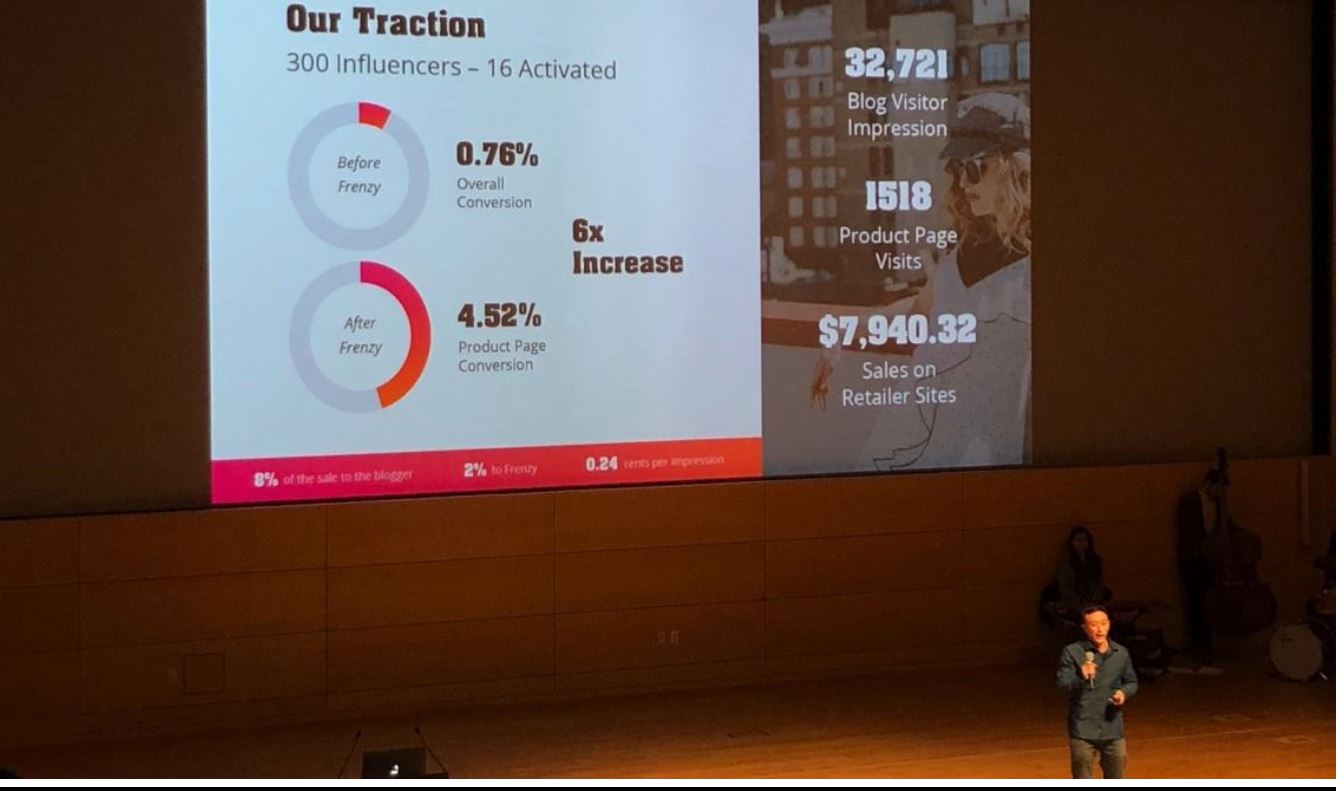 James Chang, CEO, Frenzy
Source: Coresight Research
James Chang, CEO, Frenzy
Source: Coresight Research
Hemster integrates basic hemming services into the sales process at brick-and-mortar clothing stores by providing consumers with self-fitting kits. The “plug-in” tailoring service provides retailers, and store associates specifically, a patent-pending ruler sticker to measure and tailor off-the-rack inventory for shoppers.
Founder and CEO Allison Lee said that traditional small, medium and large sizes do not fit most consumers, so the company’s goal is to customize the shopping experience based on the shopper’s fit. Hemster is partnering with major mall owners, including Simon Property Group, Westfield and Macerich.
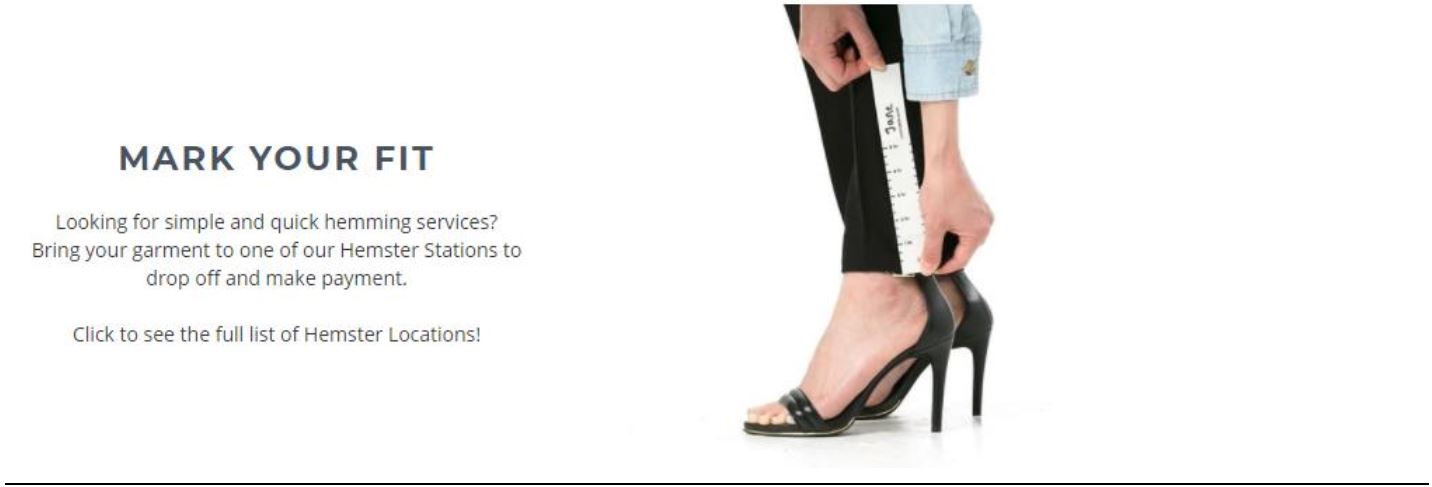 Source: Hemster.co
Source: Hemster.co
KiraKira3D is a mobile 3D design community that is targeted to Gen Z women. Founder and CEO Suz Somersall described KiraKira3D as a “virtual Etsy” that helps turn consumers into designers. The company provides tools for girls and women who do not have engineering backgrounds or access to software that enables them to design, share and 3D print creations. KiraKira3D is partnering with HP and Autodesk.
LexSet offers a B2B software solution designed to change the way people shop, assemble and design for their homes. The company provides an AI-powered solution for object recognition, spatial search, product assembly assistance and automated surface tiling. The API can integrate with technology used by companies such as Houzz and IKEA to offer shoppers a way to view how items would look in their actual home based on images taken from the their mobile camera. If a shopper wants to find a sofa to go with a new rug, for example, the program will use augmented reality to show the shopper how a particular sofa would look in the shopper’s actual space.
Founder and CEO Leslie Oliver Karpas said that LexSet differs from other available solutions in that it uses AI to interpret, in 3D, the space of a consumer’s house, and then makes furniture recommendations based on the items that are best suited for that space. LexSet currently has pilots in development with two of the top 10 furniture companies in the US, according to Karpas.
StoreDNA is an in-store decision-making platform that integrates store-level, customer-engagement data (collected via existing video feeds) with sales data from point-of-sale systems. Its digital dashboard then provides SKU, product category and fleet-level real-time actionable insights. The platform analyzes store video using high-fidelity computer vision that creates a 2 x 2 decision matrix to optimize and automate retail decision making. It operates within existing in-store data collection services to drive store productivity. CEO Martin Birac said that the platform can help retailers determine which in-store layouts will be most inspiring, for example. The company is working with Nike, Timberland, Foot Locker, Audi and Jaguar.
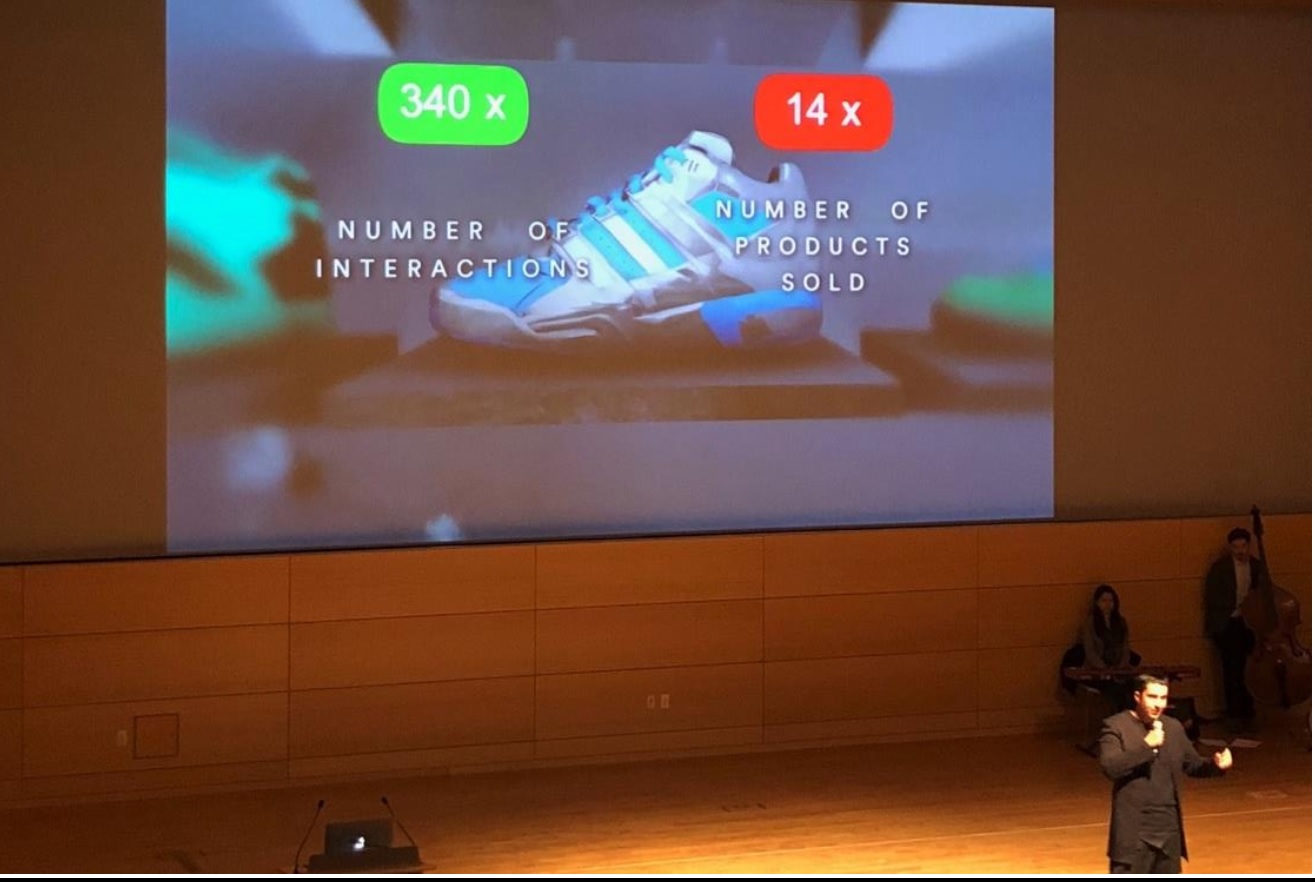 Martin Birac, Cofounder and CEO, StoreDNA
Source: Coresight Research
Martin Birac, Cofounder and CEO, StoreDNA
Source: Coresight Research
Viveat is a software-as-a-service platform that connects physical products to the web. Founder and CEO Marcello Gamberale Paoletti described the company’s offering as a smart tagging solution that creates smart assets to offer shoppers product transparency. The solution provides a unique digital identity tag that is applied to a product’s packaging. By scanning a Viveat smart product, customers are provided with the product’s digital ID and details such as what it is, what it is made of and where it has been. Retailers can use the digital ID tags to gather insights on user-product interactions.
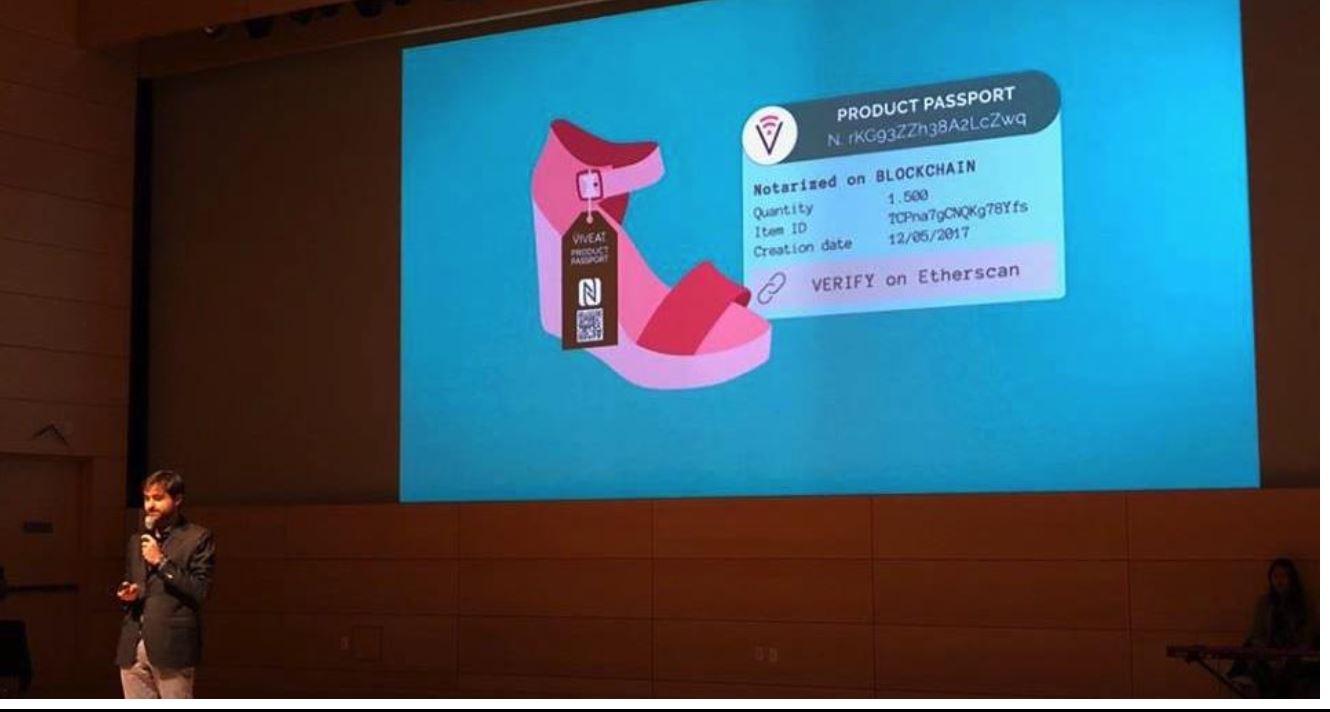 Marcello Gamberale Paoletti, CEO, Viveat
Source: Facebook.com/Viveat
Marcello Gamberale Paoletti, CEO, Viveat
Source: Facebook.com/Viveat


 Audrey Wu, Cofounder and CEO, Convrg
Source: Coresight Research
Audrey Wu, Cofounder and CEO, Convrg
Source: Coresight Research James Chang, CEO, Frenzy
Source: Coresight Research
James Chang, CEO, Frenzy
Source: Coresight Research Source: Hemster.co
Source: Hemster.co Martin Birac, Cofounder and CEO, StoreDNA
Source: Coresight Research
Martin Birac, Cofounder and CEO, StoreDNA
Source: Coresight Research Marcello Gamberale Paoletti, CEO, Viveat
Source: Facebook.com/Viveat
Marcello Gamberale Paoletti, CEO, Viveat
Source: Facebook.com/Viveat